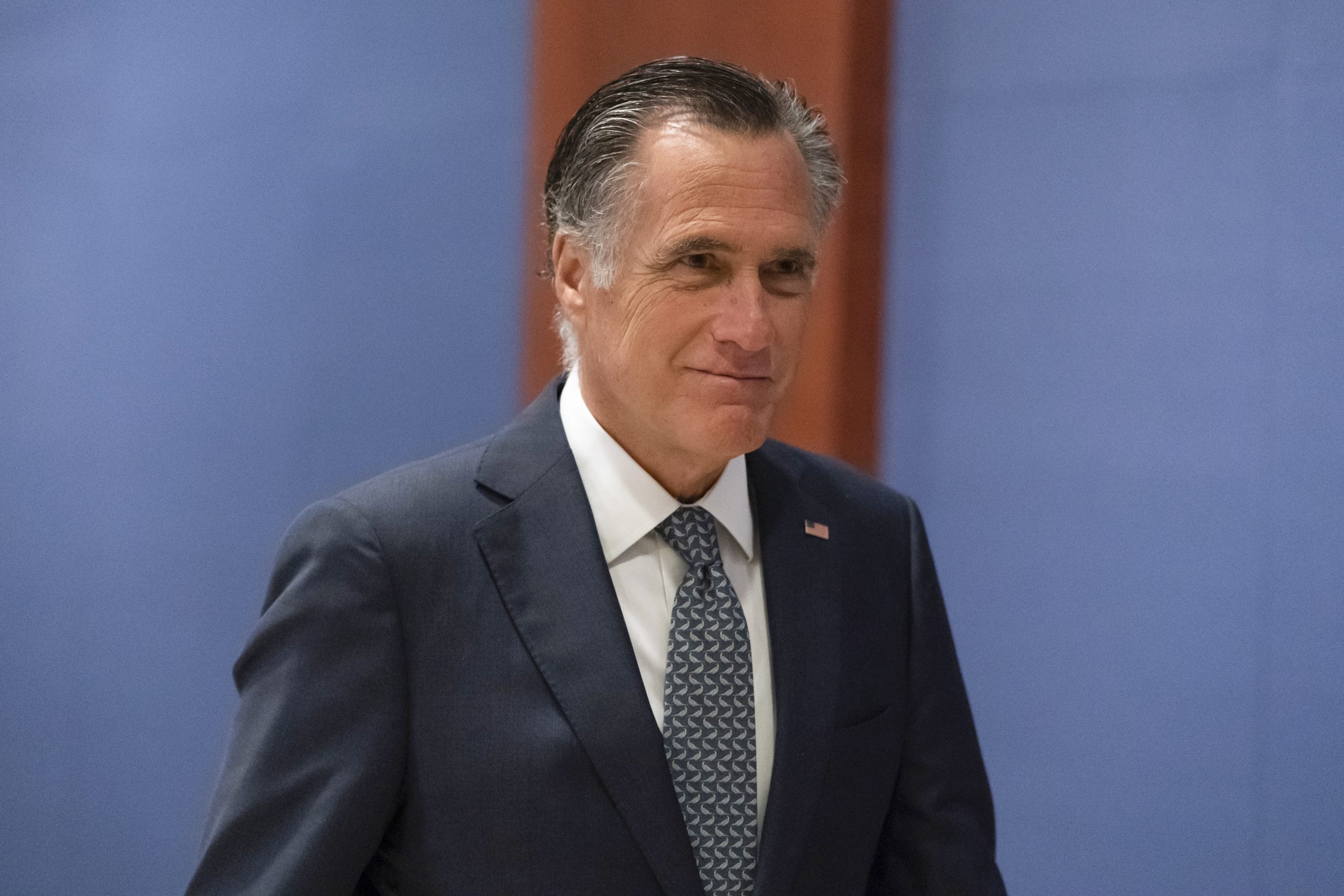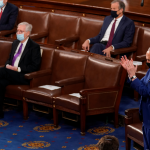Key senators are nearing a deal on a roughly $10 billion package of coronavirus relief, setting Congress on a path to deliver funding Democrats had hoped to pass weeks ago.
But some in the majority party are deeply unhappy with the compromise being negotiated with Republicans, warning that the loss of global aid will have consequences and spelling possible trouble for the package’s fate in the House.
The sum — the result of days of negotiations between senior senators of both parties — would leave out a major ask from the White House. It does not include $5 billion in global vaccine efforts, drawing sharp complaints from many Democrats about the nation’s preparedness to fight the pandemic abroad.
“My understanding is there’s a deal, and we’re going to get briefed on it at lunch,” Sen. Tim Kaine (D-Va.) said, adding that he was “very upset” that billions in global vaccine funds would be excluded. “That was a real missed opportunity.”
Trying to break a Senate filibuster will require at least 10 Republicans’ support, a vote that Majority Leader Chuck Schumer could call up next week — early hope for a test vote on Thursday dimmed by midday. Meanwhile, next week’s floor schedule will be dominated by confirming Supreme Court nominee Ketanji Brown Jackson, heightening the potential urgency of a vote.
“They’re pretty close to working out a deal on $10 [billion],” Sen. John Cornyn (R-Texas) said of the closed-door efforts. “$10 billion is a lot of money.”
Key senators of both parties began dealmaking in earnest this week on a revised aid package, after an earlier version collapsed in the House over objections from several Democrats over how to pay for the aid. Schumer has negotiated closely with GOP Sens. Mitt Romney (Utah), Roy Blunt (Mo.), Richard Burr (N.C.) and Lindsay Graham (S.C.). Democratic Sens. Patty Murray (Wash.) and Chris Coons (Del.) were also part of the negotiations.
Senators clarified there are still some bumps to navigate before a floor vote. Romney said they’re still waiting on a score from the Congressional Budget Office, and Murray said the total amount is still in flux and that it’s too early to say their work is done.
“This is the United States Senate, a deal isn’t a deal until we have signatures on a piece of paper. I can say everybody is trying to work on something that we can get passed,” Murray said.
The full package could clear the chamber in the coming days and head to the House, where many Democrats are deeply unhappy about the plan to significantly downsize the size of the package.
“I think what the Republicans are doing is either they don’t care or they don’t know. But it is wrong,” Speaker Nancy Pelosi told reporters Thursday, though she did not say her caucus would refuse to consider a scaled-back version.
Multiple House Democrats are already threatening to withhold their support for a pandemic bill that does not include the $5 billion in global vaccination funds. Even if they cannot negotiate a bigger price tag, several lawmakers said they will demand that at least some of the funding goes toward international health efforts.
“I just cannot support another round of Covid funding that just completely eviscerates our ability to be, as Joe Biden put it, the arsenal of vaccines for the world,” Rep. Tom Malinowski (D-N.J.) said. “We have to get it right.”
“I continue to be mystified by the willingness of some at the White House to deprioritize what every expert would agree is the most important and cost-effective thing we can do to protect ourselves,” Malinowski said of the administration’s decision to sign off on the deal without global funding.
GOP senators floated the $10 billion aid package on Wednesday — scaling back a previously negotiated $15.6 billion deal that collapsed in the House earlier this month. It’s also far less than the White House’s initial request of nearly $22.5 billion, which included asks for tests, therapeutics and vaccines — including shots for children under 5 years old, which could be approved in the coming months. The GOP’s latest proposal was first reported by The Hill.
After Congress’ initial Covid funding deal fell apart, the White House has turned up the pressure on lawmakers to deliver quickly. Officials have repeatedly warned that they don’t have the funds to restock vaccines with another potential Omicron wave on the horizon, among other pressing needs.
Pelosi, among other Democrats, also voiced concern about the Senate’s plan to trim the size of the package during a closed-door meeting of lawmakers earlier Thursday, according to multiple people in the room.



















